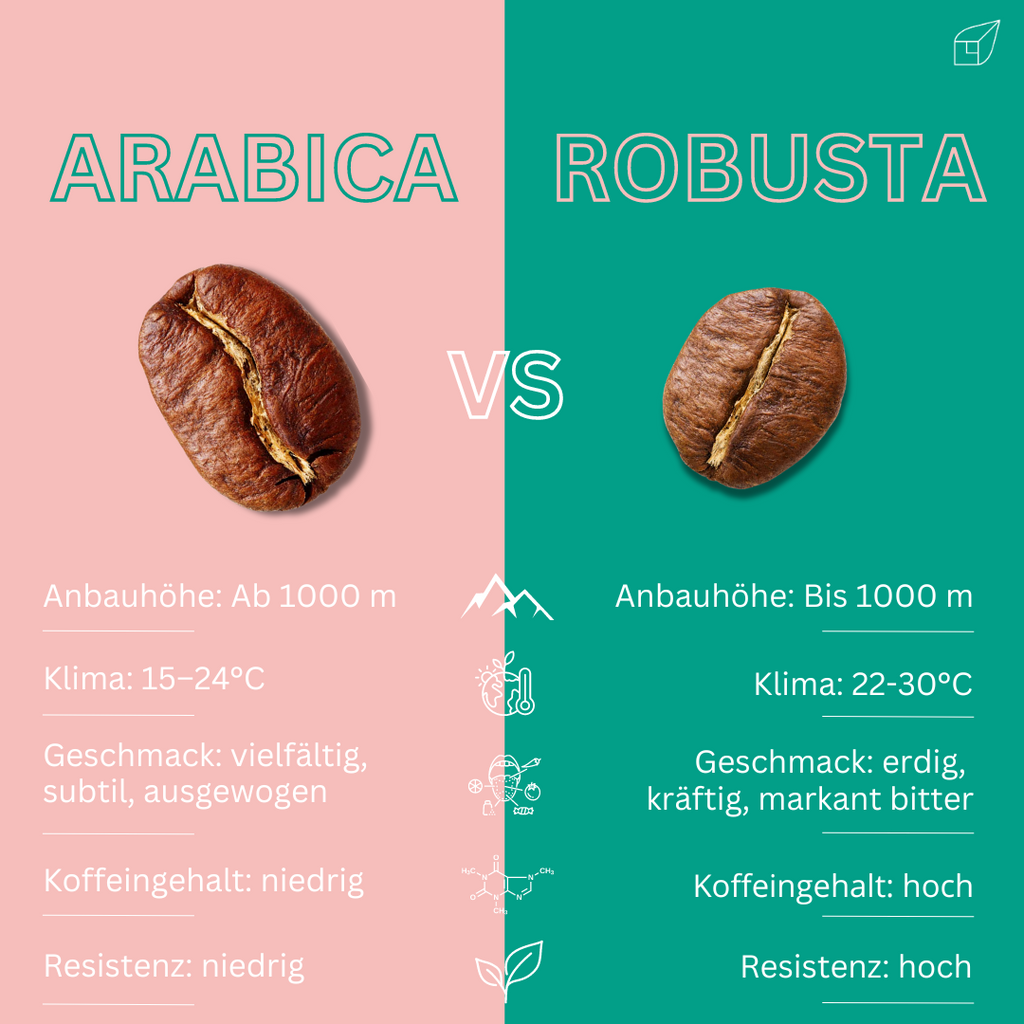Arabica vs. Robusta - These are the differences between the most popular types of coffee

"I'm looking for 100% Arabica coffee," is a daily response from our coffee counter. But what does Arabica actually mean, and why is Arabica coffee so popular?
Similar to winemaking, there are several coffee varieties in the world of coffee. A coffee variety refers to its biological classification. There are over 120 coffee varieties in total! The two most well-known are Arabica (Coffea arabica) and Robusta (Coffea canephora). Only a fraction of coffee is produced from other coffee varieties (such as Coffea liberica).
The name Arabica has a historical origin, as coffee was native to the Arabian Peninsula and has a long history there. Today, Arabica accounts for the majority of the global market. The Arabica plant is very sensitive and only grows in a temperate climate at an altitude of 1,000 meters or more. In this climate, the coffee cherry ripens very slowly and thus develops a variety of aromas. The Arabica bean can be composed of up to 800 aromas! They usually have a subtle and balanced flavor with a wide range of aromas – from fruity and floral to chocolatey and spicy.
Robusta, on the other hand, has a rather bad reputation. And rightly so? As the name suggests, the Robusta plant is significantly more robust and resilient than the Arabica plant. Furthermore, the plant is more resistant to pests, extremely durable, and grows even in flatter areas up to 1,000 m above sea level. It requires an average temperature of 22-30 °C and thus grows significantly faster than the Arabica plant. This has the disadvantage that Robusta beans cannot develop the diverse flavor palette of Arabica beans. Robusta beans have a strong, earthy flavor with a distinctive bitterness and full body. Furthermore, their caffeine content is twice that of Arabica beans.
Although the Robusta plant is botanically much more resistant to pests and climate change, and also more cost-effective, the Arabica bean remains extremely popular due to its diverse and balanced flavor palette and low caffeine content. It's clear that opinions about Robusta are divided. While some consider it completely underrated, others reject it entirely. In recent years, however, Robusta has gained popularity as an espresso thanks to its distinctive crema.
